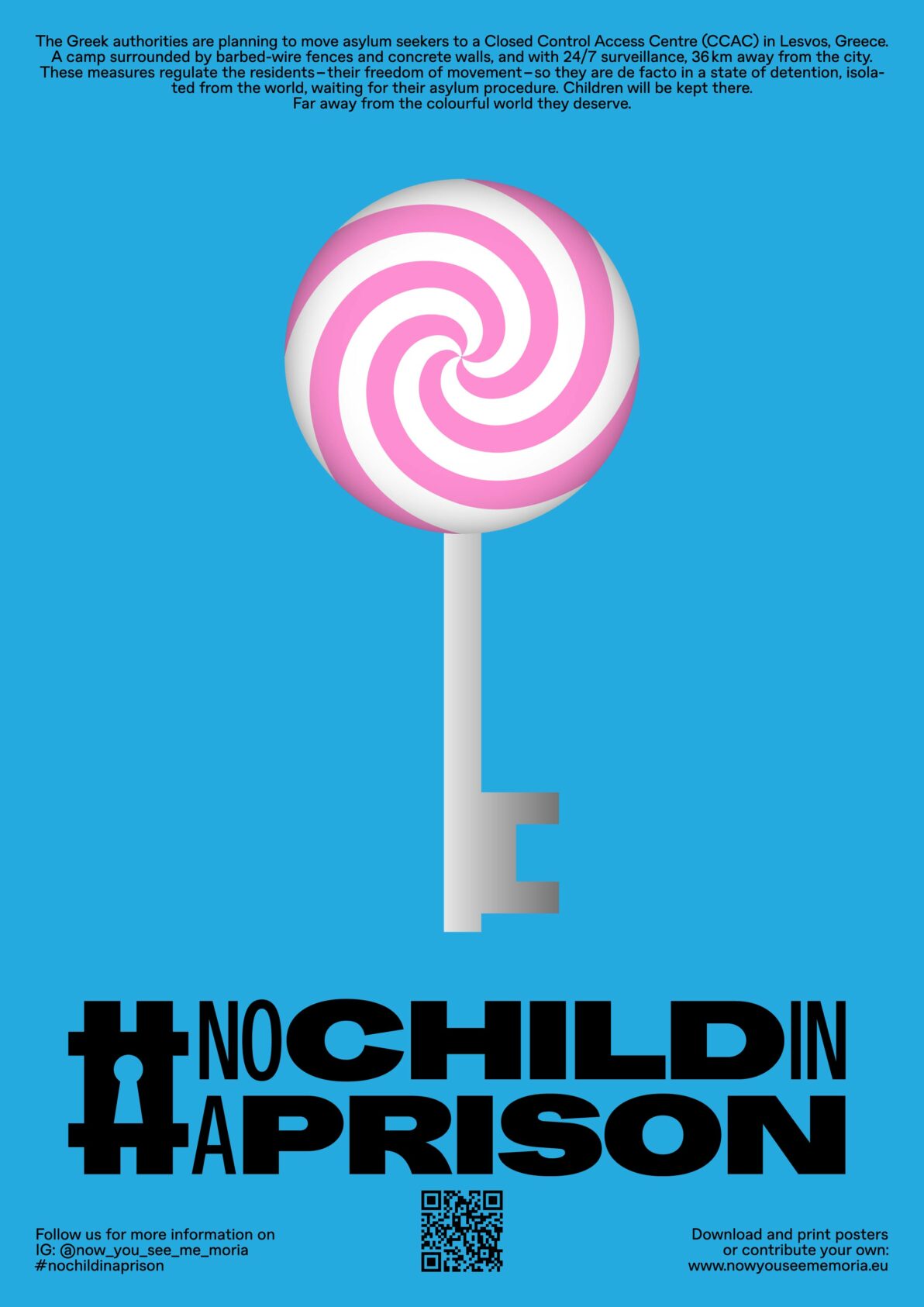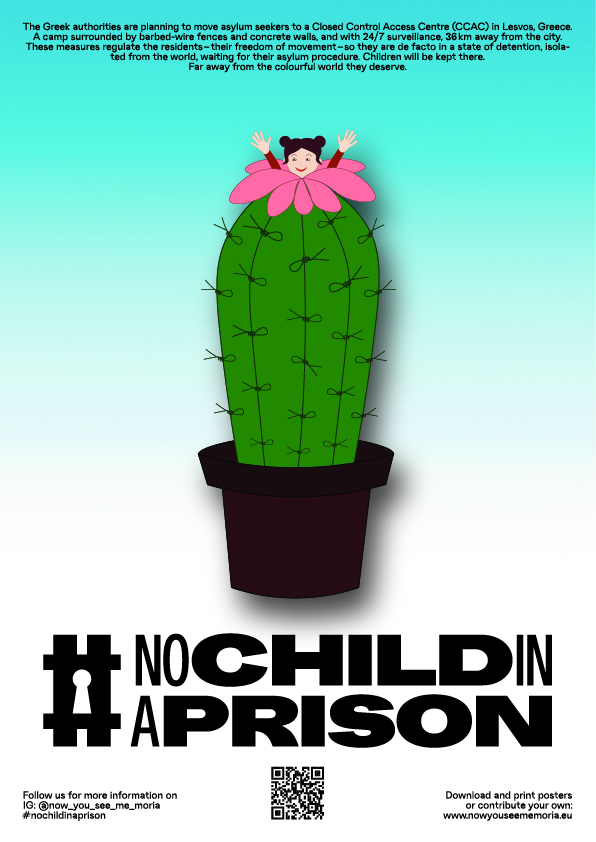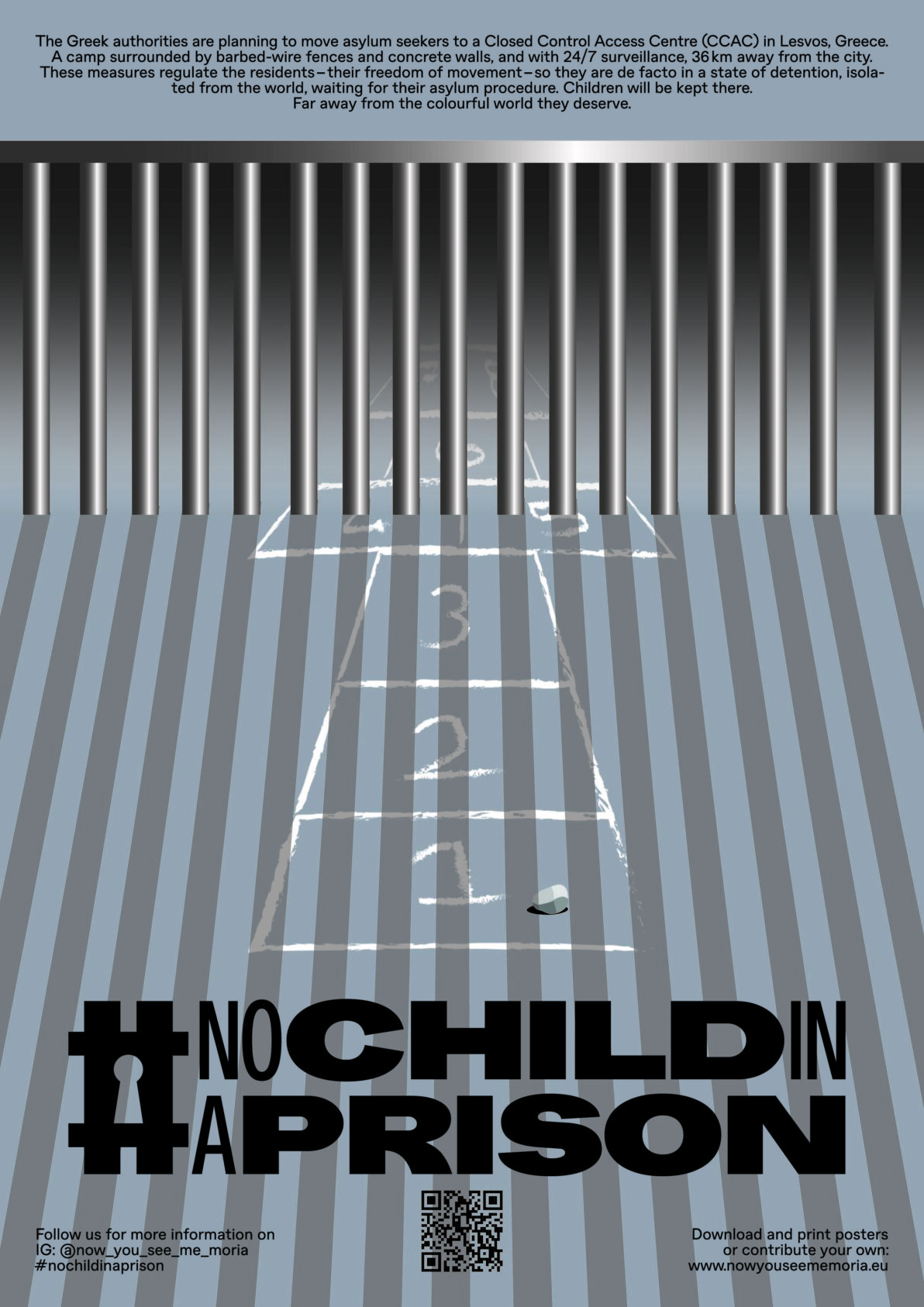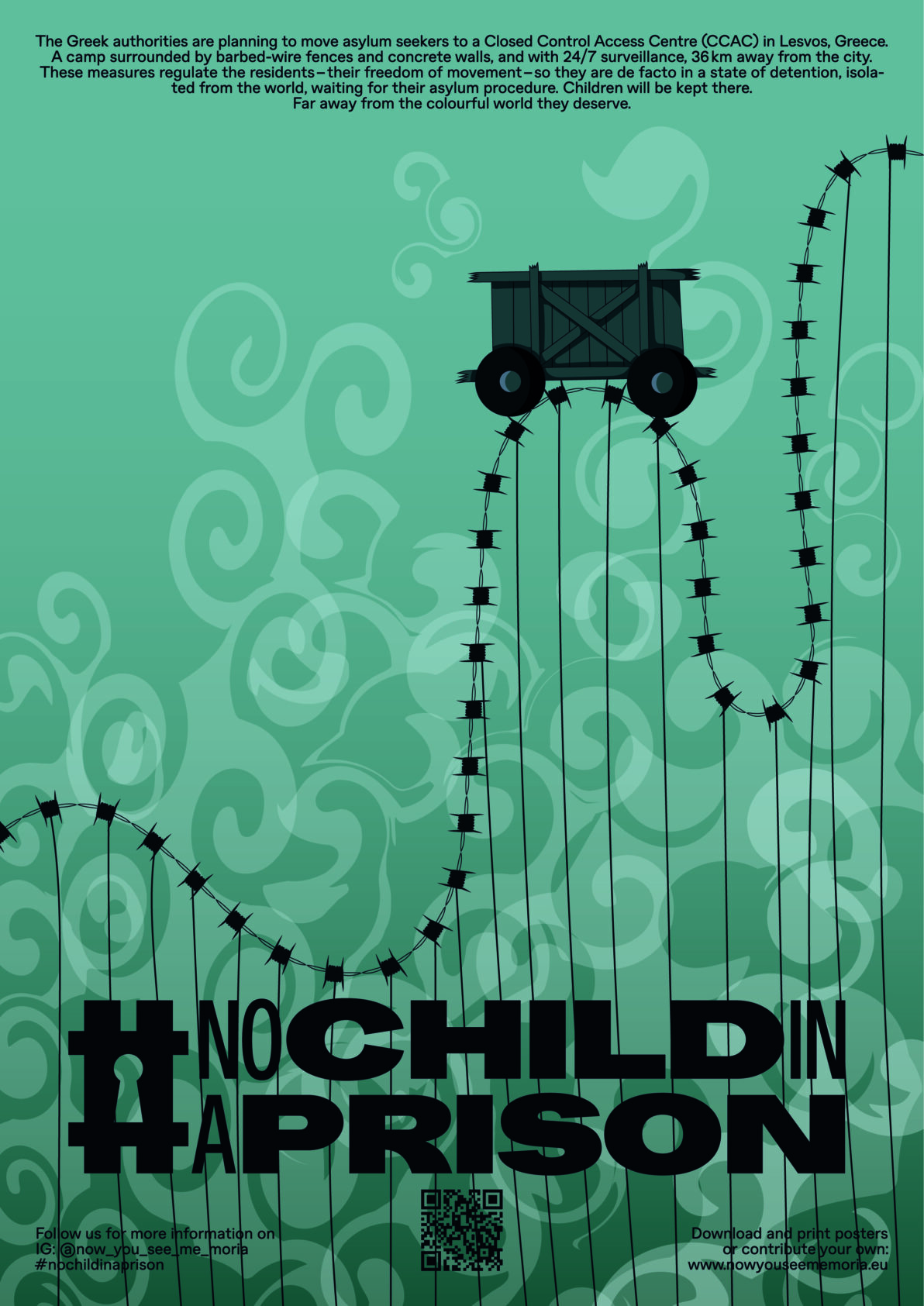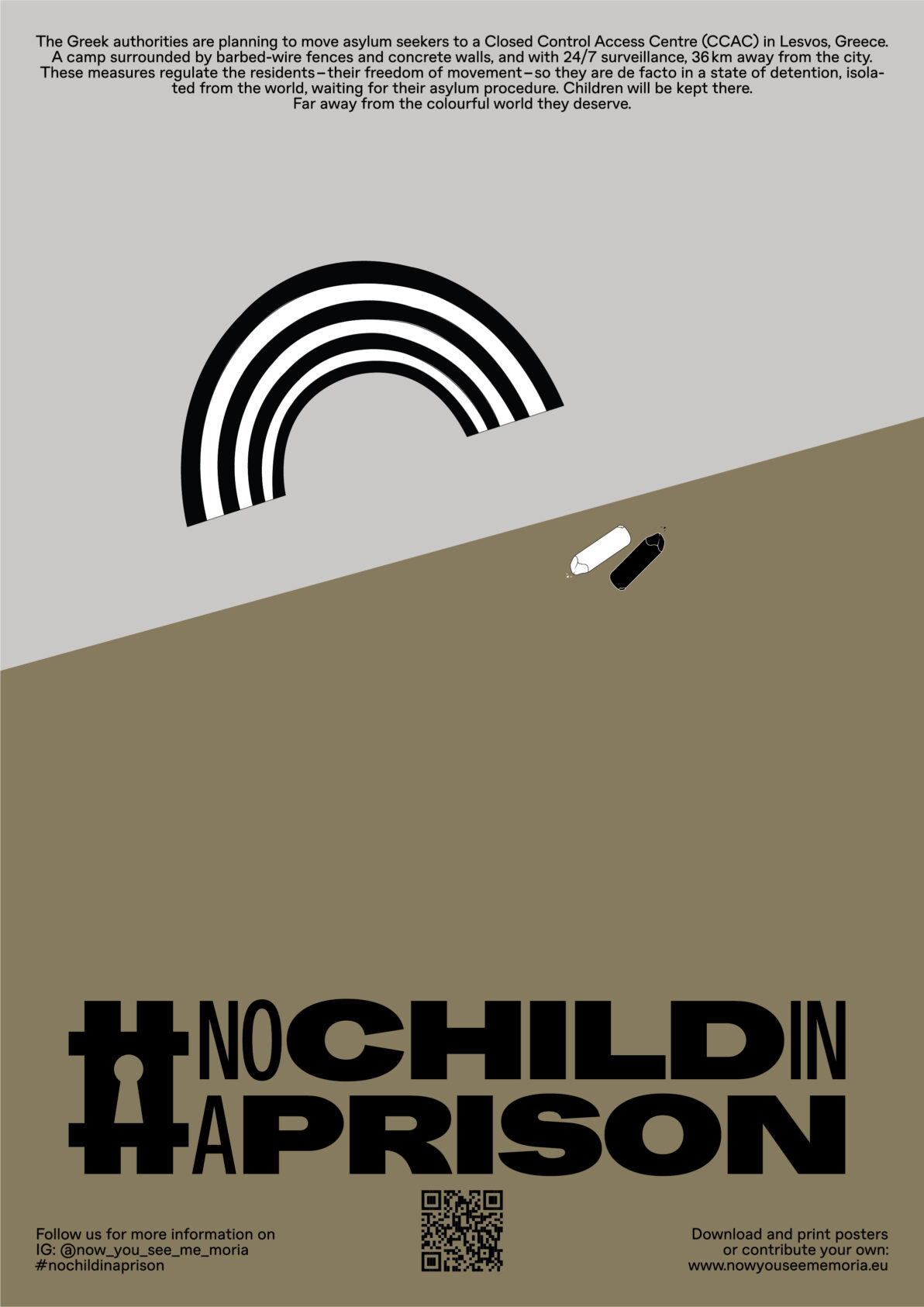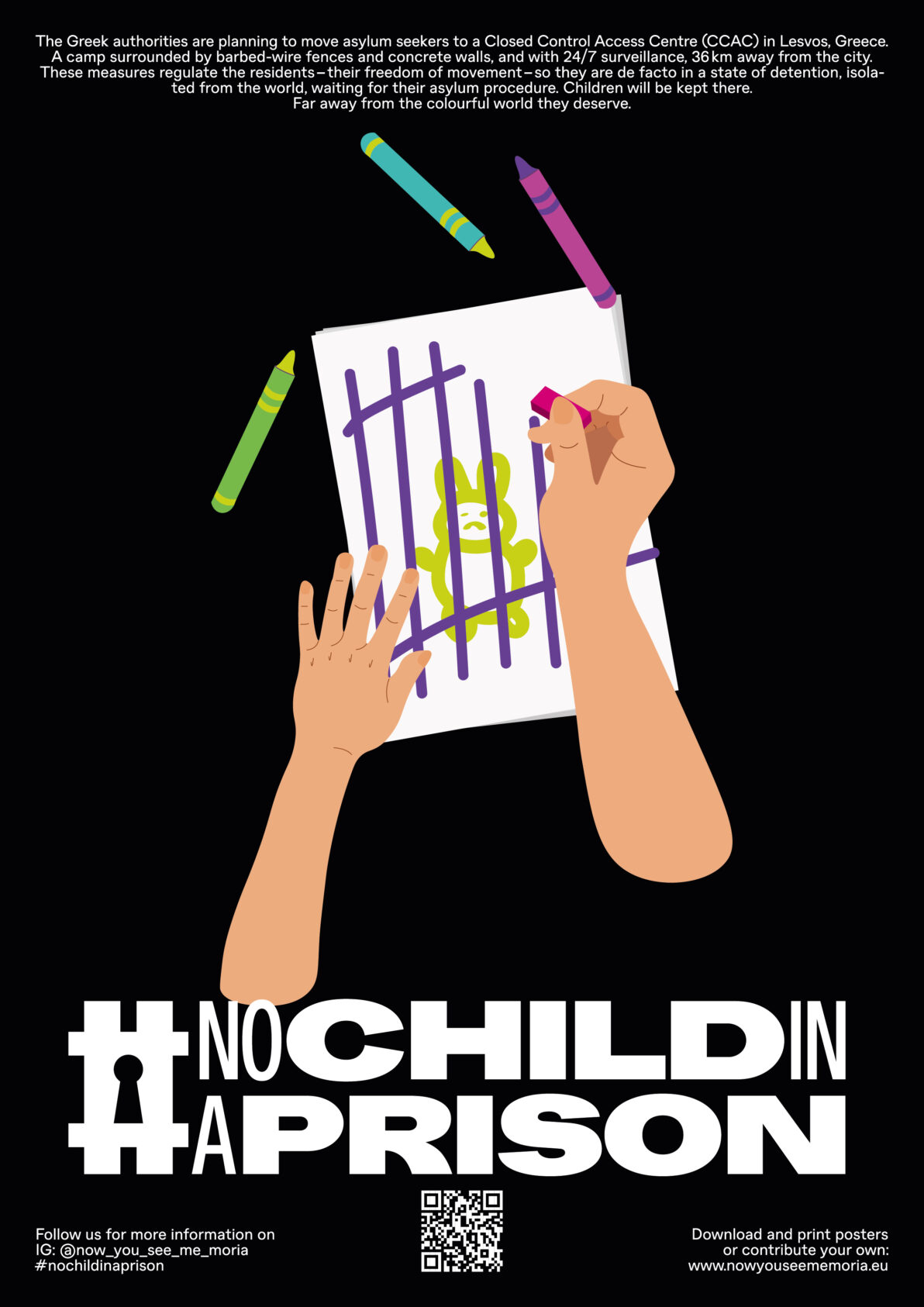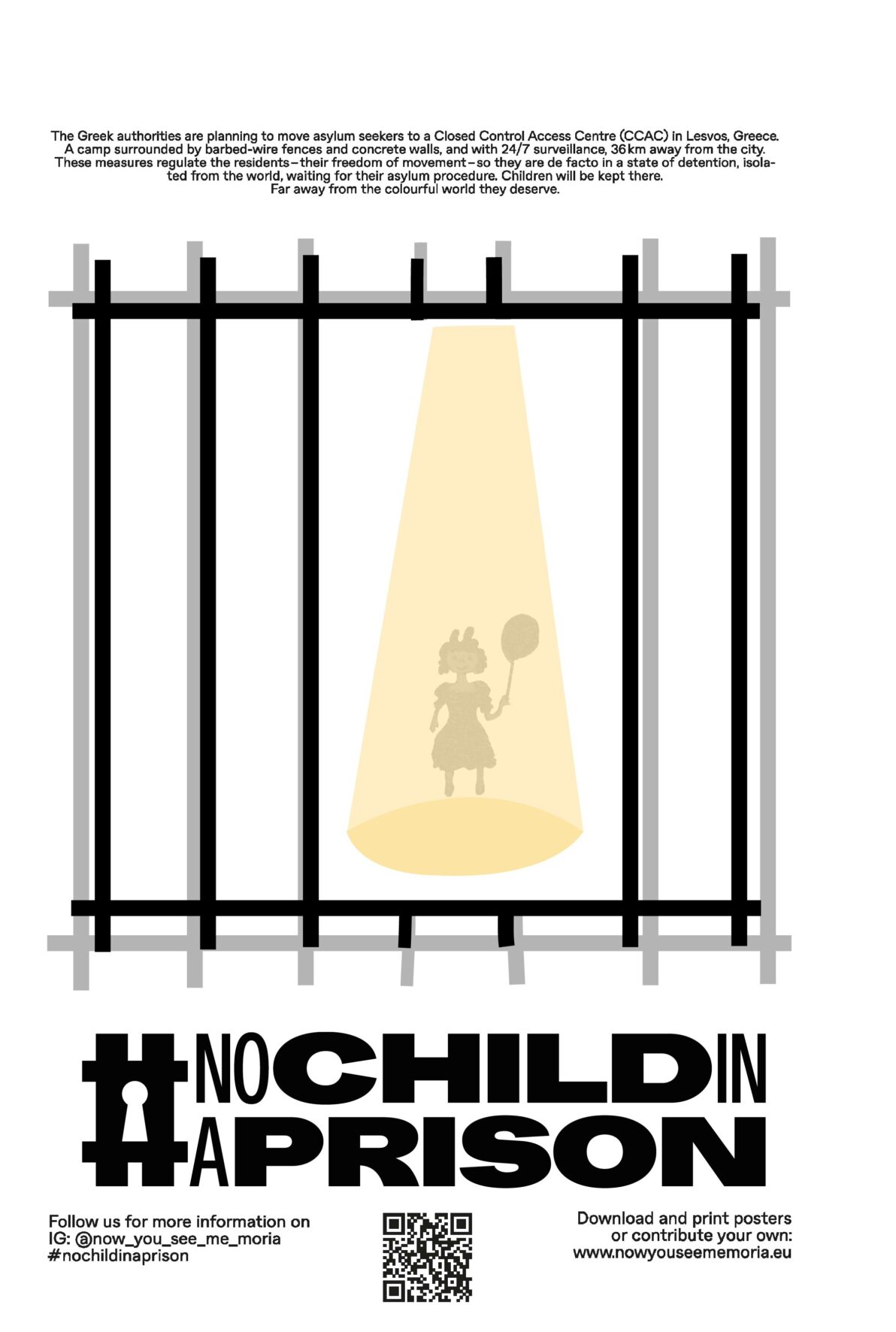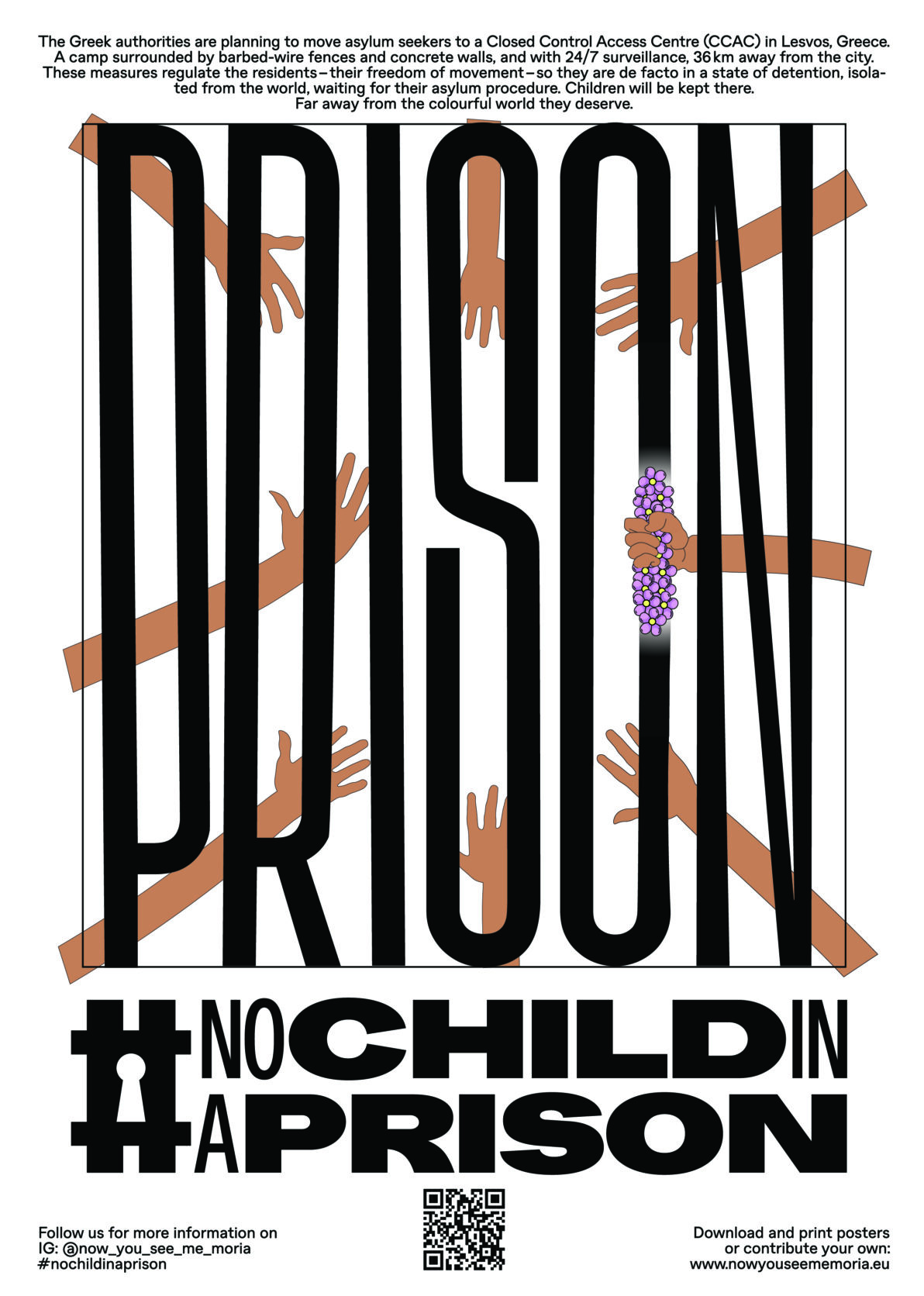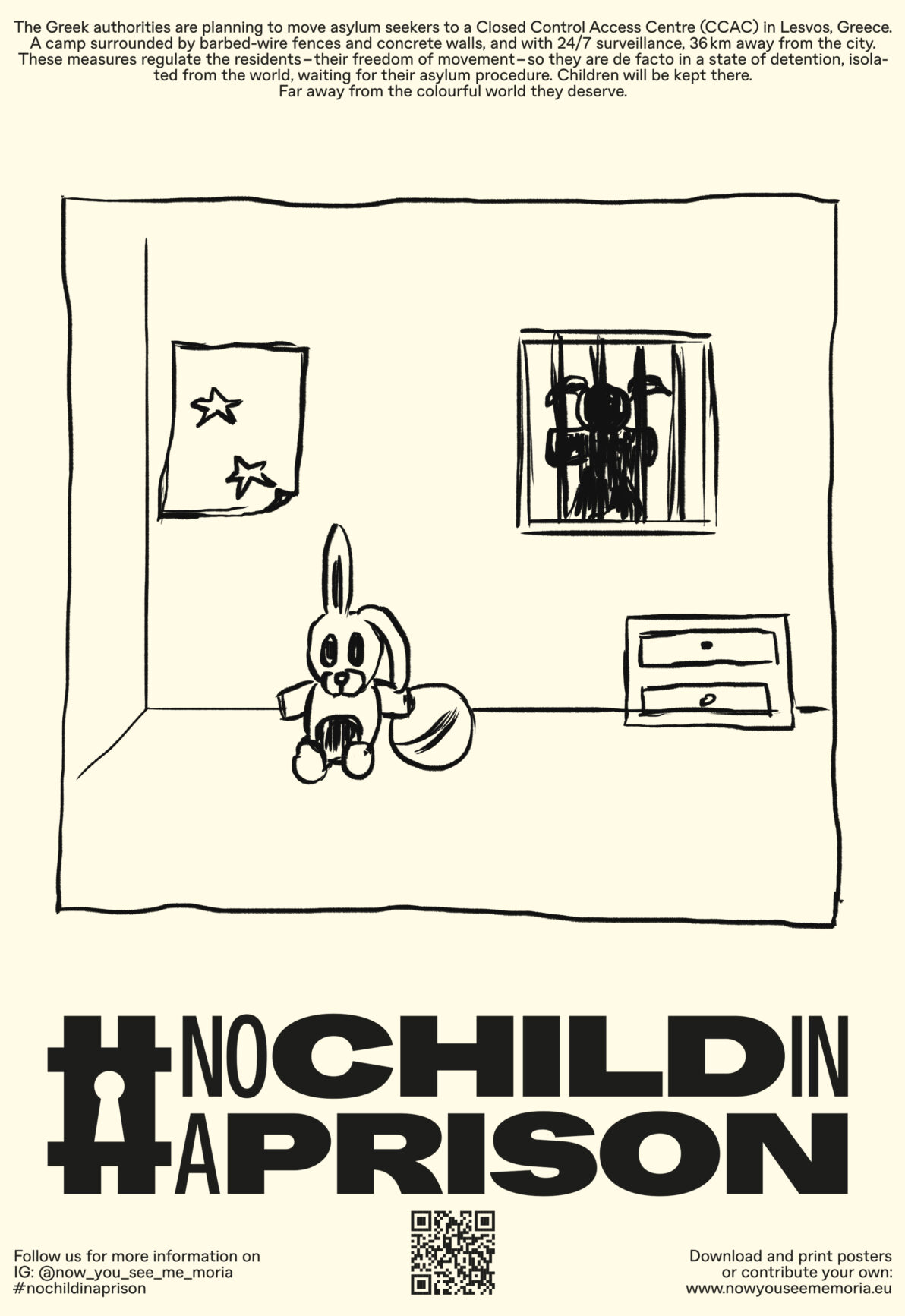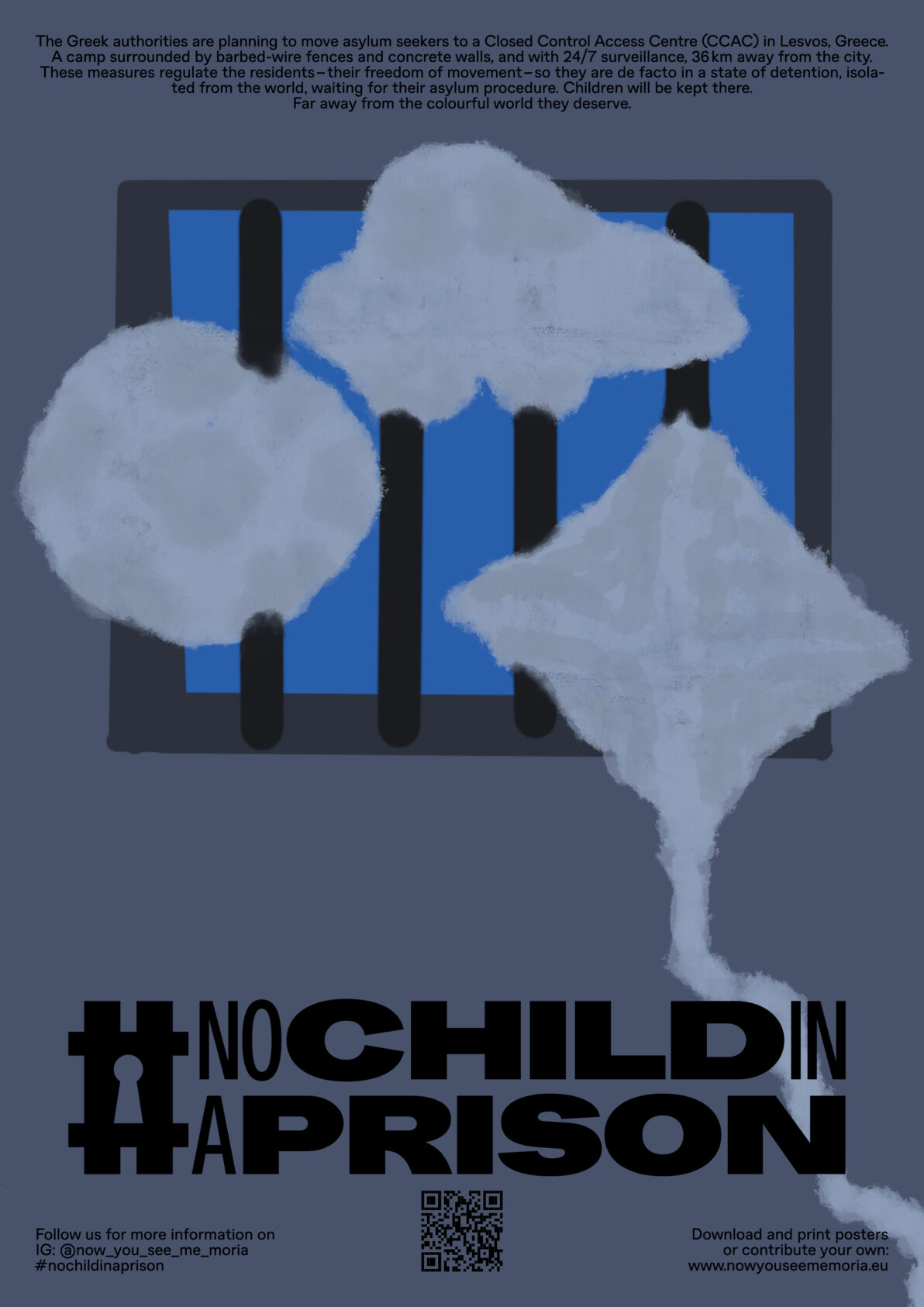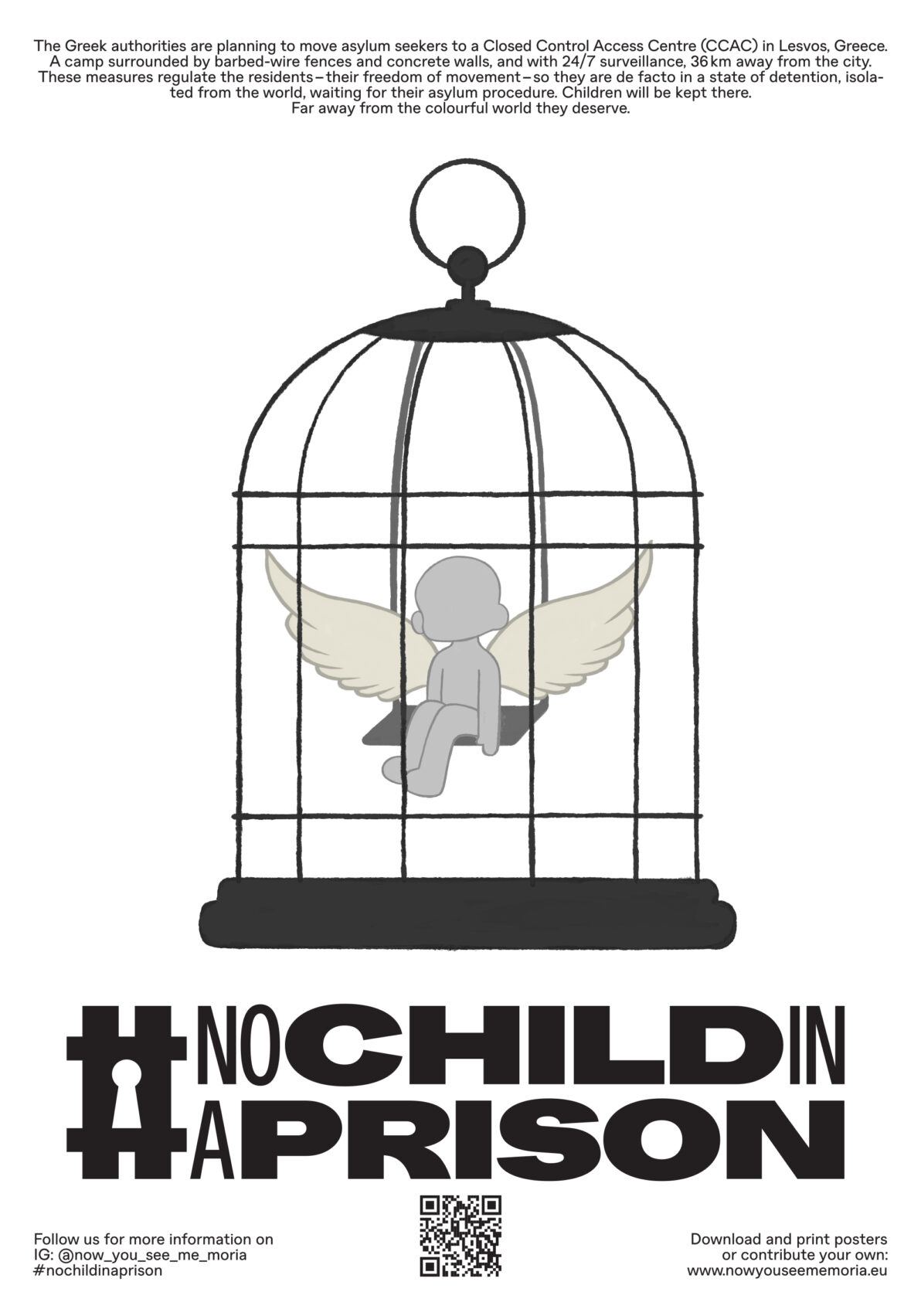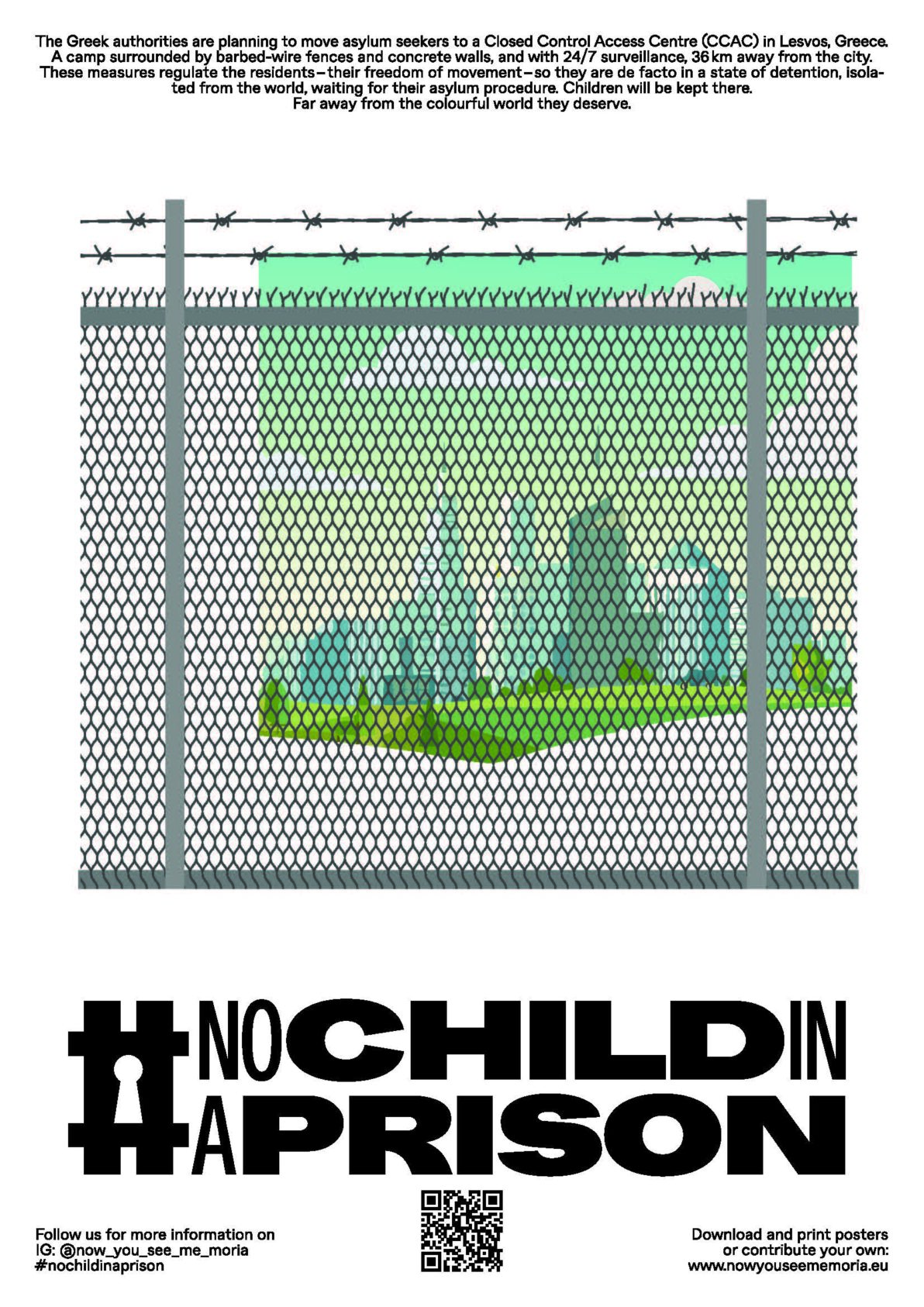
The Greek authorities are planning to move asylum seekers to a Closed Control Access Centre (CCAC) in Lesvos, Greece. This is a camp surrounded by barbed wire fences and concrete walls, with 24/7 surveillance, 36 km away from the city.
These measures regulate the residents – their freedom of movement – so they are de facto in a state of detention. They are isolated from the world in a place to wait for their asylum procedure. Also children will be kept in this place.
Far away from the colourful world they deserve. So how do children dream, cry, eat, grow up, hope, hide, learn, play, sleep and wish in a prison?
Our aim
The goal of our campaign is to bring awareness and open a discussion between European citizens about the need of CCACs. Is a detention camp a suitable and legal place for a vulnerable child? We are fighting for unaccompanied minors and children, including their families, to be transfered to a suitable center where their human rights are respected. Not to a detention camp.
Any unaccompanied minor or child with their families included shall not be transferred to a CCAC. Instead, suitable centres should be the ones chosen for their asylum procedure period.
What can you do?
As a creative
We invite all creatives to use your creativity and show your anger, criticism and dispair. We as creatives have to show our solidarity and use our skills. Create an artwork, that emphasizes your message. The technique is yours to choose. You can work illustrative, draw, write, collage it, etc.
1. Download the templates and read the guidelines
2. Create your artwork
3. Submit here
For your designs please keep in mind that western imagery isn’t equally meaning free. We are trying to avoid media stereotypes. Colonial imagery will not be accepted. Instead, emphasize on the EU-border policies, children’s and human rights and criticism about the responsibility of our governments.
As a citizen
Help us out by printing out your favourite poster. Put them up anywhere you can, like at home, at work, in coffee shops, or in the hallways of your university. Take a picture, add the hashtag #nochildinaprison, tag @now_you_see_me_moria and share it as far as possible.
Make an appointment with the mayor of your town or city to explain the problem and request their political involvement in changing it.
We urge law students and attorneys to investigate and identify legal means to prevent the transfer of children and their families to the CCAC.
Contact one of the 705 members of the European Parliament from your nation to propose a revision in the legislation to prevent the transfer of any children to a CCAC. Demand that they modify the law and practice as they did with Ukrainian refugees. Demand that no minors, either alone or with their families, are sent to CCAC. Instead, appropriate accommodation ought to be established for them during the asylum process.
Read more about CCACs
Close Control Access Centres (CCAC) are the latest migration management model for the Aegean Sea, funded by the EU and managed by the Greek authorities. Under the justification of better human conditions for asylum seekers and to avoid the reoccurrence of the Moria Camp humanitarian crisis, the Greek government has built offshore detention centres to contain the situation away from the Greek mainland. The CCACs are the result of the EU’s aggressive policy to stop illegal migration at its borders. Those centres sold to the public as humanitarian solutions aim solely to identify, process, and hold migrants upon their arrival on Greek shores — a procedure that has nothing to do with care. Managed by the Ministry of Asylum and Migration, the Greek police, and various European and international actors, those centres are facilities that detain and isolate asylum seekers away from entering Europe. Migrants are detained in these facilities and then forced to live there until their asylum cases are processed and decided upon, a process that could take months or even years. CCACs are a solution imposed by the EU on Leros, Kos, Samos, and will soon be imposed on Lesvos and Chios.
By design, CCACs are offshore, hidden detention centres. The CCACs have state-of-the-art surveillance, double (NATO-type) security fences, security towers, turnstiles, magnetic gates, x-rays, and a biometric two-factor access control system. Accommodation-wise, It has separate, fenced-in areas for people who are especially vulnerable, like unaccompanied minors and single-parent families. It also has a place for the general population and new arrivals to stay, as well as a quarantine zone. In addition, the CCAC features fenced playgrounds, gated recreational spaces, and a pre-removal centre (called PROKEKA), which is a maximum-security holding facility operated by the Hellenic police.
The CCACs are usually placed in remote and rural areas, distant from cities. The Lesvos CCAC’s proposed location is no different; at 30 km from the island’s capital, Mytilini, it is a significant distance from both medical and educational resources.
In reality, instead of establishing spaces of care, protection, and safety, the Greek authorities, backed by the EU, established centres of control, exclusion, and detention for those seeking refuge. In these CCACs, all asylum seekers are being held, including unaccompanied minors, children, single-mother families, families, and people who are vulnerable. The asylum seeker’s physical and psychological well-being is consistently threatened by those hard conditions. How is it possible that after a life-threatening journey across the Mediterranean Sea and escaping their home country, where they face imminent danger and hardships, the Greek state, with the EU, welcomes asylum seekers with centres that alienate them from urban life, gate them from the world, interpret their routes, and detain them away from a better life? We should think of ways to deal with asylum seekers that don’t involve locking them up and isolating them.
In the name of protection and safety, the EU’s current practises and approach result in the incarceration of minors and other vulnerable groups. Here, it is important to call out those issues and find out who is being protected from whom in this situation. Because what we see is a clear violation of human rights. Also, instead of creating strategies for integrating refugees and treating them with respect and dignity, the EU instead embarked on an aggressive, inhumane plan to exclude them.
This is a call to action. Every step is important. Support us in showing the truth, and join us in exposing the reality of the EU’s way of managing migration and asylum in Greece.
Campaign design:
Justus Heuschele
Y-Thanh Võ
